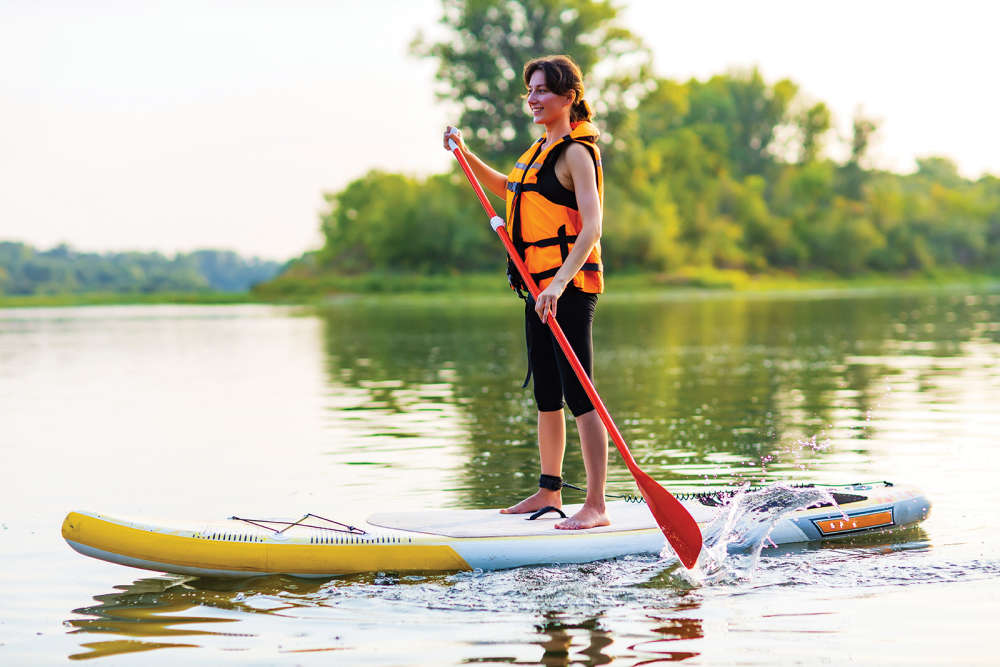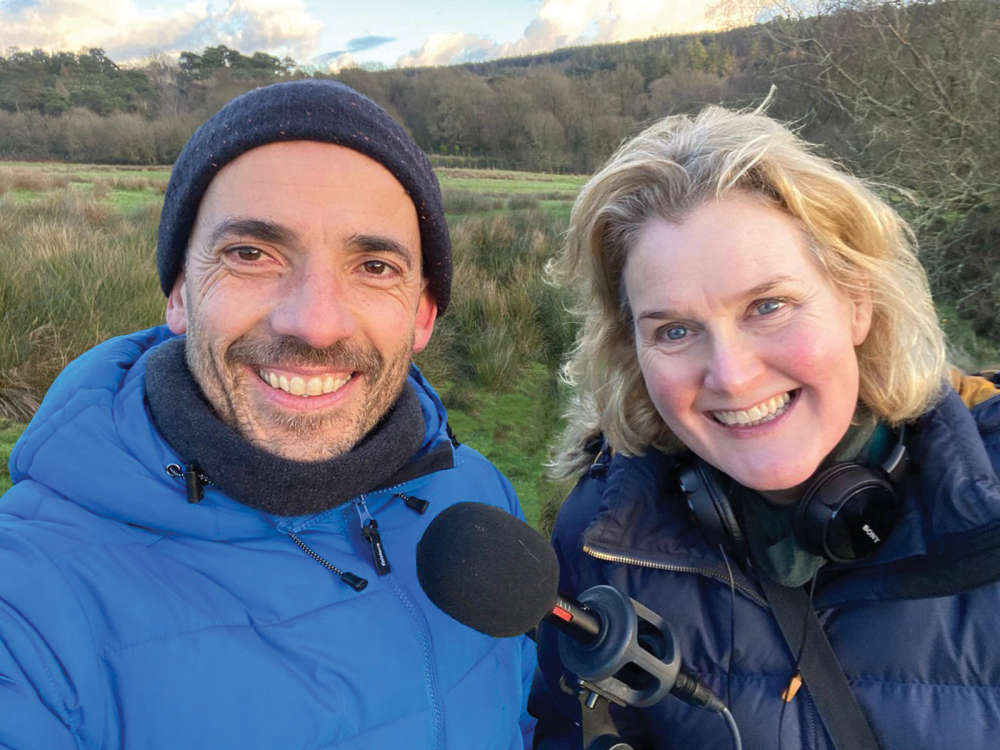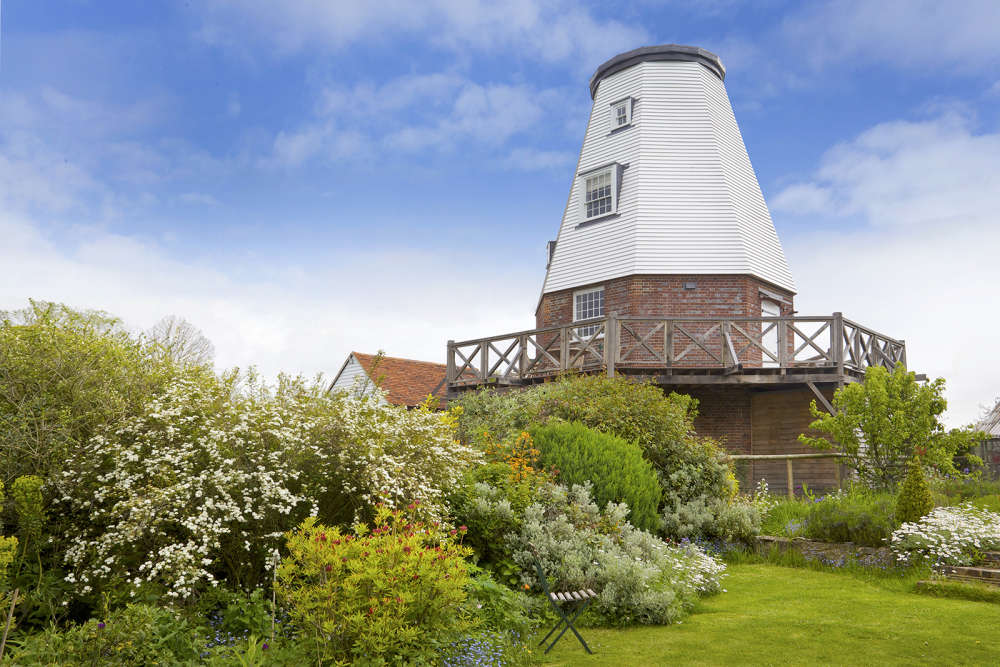
Join the science celebrations from 8-17 March with British Science Week 2024. Sara Whatley finds out more
Happy Birthday to British Science Week! In 2024 it is their 30th year celebrating all things science. It is a great opportunity to bring new and exciting science into the classroom, into the home or wherever you are.
“British Science Week is an annual ten-day celebration of science, technology, engineering and maths (STEM),” said the British Science Week team. “This year it’s taking place 8-17 March and it’s the 30th anniversary. To mark this huge milestone British Science Week (delivered by the British Science Association, BSA) is partnering with the Royal Observatory Greenwich to bring this year's theme to life. The theme is 'Time'.”
Hannah Russell, Chief Executive of BSA explained: "At the BSA, we're delighted to be working with the Royal Observatory Greenwich to celebrate British Science Week's 30th anniversary. The historic significance of the Royal Observatory to modern timekeeping across the world makes them the perfect partner for this year's theme of 'Time'."

Time is a slippery subject, and one that has ignited many an engaging discourse between scientists and thinkers over the years. It is concrete – lunch is at 1pm – and yet elusive; time slips by without us noticing. It is not tangible, and yet it is made so in representations: clocks, watches, calendars, pictures etc. Time can be seen in so many things in life; a butterfly flitting quickly and a snail slithering slowly. A moment in time captured in a photograph. The changing of the seasons. How technology has evolved – look at the difference between a television 30 years ago and a television today!
See how many different ways you can think about time or spy time related things around you. For those bubbling with time related inspiration why not enter the British Science Week poster competition?
“During British Science Week, anyone can organise an event or activity. Teachers, parents, community groups, STEM businesses and the general public can find a number of resources on the website including four free activity packs with ideas to do science at home, in the classroom, in the local park or online,” the British Science Week team told me. “So many of the activities can be done with equipment you’ll find in your cupboards. We’ve also launched a Communities’ Hub, full of engaging activities for mixed-age groups to get involved in science.”

The purpose of British Science Week is to promote science, technology, engineering and maths to children and people of all ages and to make it fun, accessible and something to aspire to. The action packed week also aims to motivate STEM teachers and professionals – with fantastic ideas and resources available online to encourage budding scientists of all ages.
STEM subjects are being taught from an early age in schools, as it has been suggested that engaging a child in STEM learning in primary education will make it easier for them to engage in these subjects in secondary school, A levels, university and beyond.
The STEM teaching in primary education is concerned with children realising there is a connection between the classroom and the world around them by getting them engaged in project based learning. The activity packs from British Science Week include activities for all ages; early years might like to try playing with shadows or making a sand timer. Primary age children could debate the extinction of the dinosaurs or build a 'Water Clock' – one of the most ancient time-telling devices; secondary age children might be interested in playing a game showing how biomagnification takes place in the food chain. And in the community pack you might like to engage with the sustainable transport activity, and even think about your career options using creative and design skills in green jobs.

Smashing stereotypes is something British Science Week also tackles. Who do you picture when you think of a scientist? Albert Einstein in a lab coat with a fizzing conical? Challenging this old fashioned stereotype, British Science Week encourage people from all walks of life, from all backgrounds, interests and career paths to aspire to be the scientists of tomorrow, and celebrate the diversity in science today.
“Whether they aspire to a future career that involves science (this includes more jobs than you might think!), or they just want to know more about the world around, enjoying STEM education every step of the way bolsters children’s opportunities and ability to contribute positively to society,” the British Science Week team said. “British Science Week is a wonderful opportunity to shine the spotlight on STEM; how fun it can be, the careers it can lead to, and how it touches all of our lives every day!”
Visit www.britishscienceweek.org for more information

 Home Style: Colourful New Life
Home Style: Colourful New Life
 Money Matters: Release Reality
Money Matters: Release Reality
 World Listening Day 2024: Learning to Listen to our Environment
World Listening Day 2024: Learning to Listen to our Environment
 Spotlight Events: What's On in July 2024
Spotlight Events: What's On in July 2024
 RSPCA Celebrates 200 Years
RSPCA Celebrates 200 Years
 Be Well, Move Happy: Learning a New Skill and Water Sports
Be Well, Move Happy: Learning a New Skill and Water Sports
 10 Ideas for a Screen-Free Summer
10 Ideas for a Screen-Free Summer
 Home Style: Bold Type
Home Style: Bold Type
 What to Watch in July 2024
What to Watch in July 2024
 The Exciting Appeal of the Beach Holiday
The Exciting Appeal of the Beach Holiday
 "I quite like to end up with a setlist that involves a catalogue of human misery..." Nish Kumar on his return to stand-up comedy
"I quite like to end up with a setlist that involves a catalogue of human misery..." Nish Kumar on his return to stand-up comedy
 Money Matters: The Revenue Generation
Money Matters: The Revenue Generation
 Home Style: A Better Way of Life
Home Style: A Better Way of Life
 Weddings: The Food of Love
Weddings: The Food of Love
 Vino, Vidi, Vici: The Vineyards, Breweries & Distilleries of Sussex
Vino, Vidi, Vici: The Vineyards, Breweries & Distilleries of Sussex
 Homes Extra: Digging a Design
Homes Extra: Digging a Design
 Listening to Nature: Meet the people behind the Ashdown Forest podcast
Listening to Nature: Meet the people behind the Ashdown Forest podcast
 Home Style: Tales from the Mill
Home Style: Tales from the Mill
 SPECIAL OFFER: General Admission Tickets To The Al Shira’aa Hickstead Derby Meeting
SPECIAL OFFER: General Admission Tickets To The Al Shira’aa Hickstead Derby Meeting
 A Gourmet Escape on the Eurostar: London to Amsterdam with Culinary Delights in Almere
A Gourmet Escape on the Eurostar: London to Amsterdam with Culinary Delights in Almere